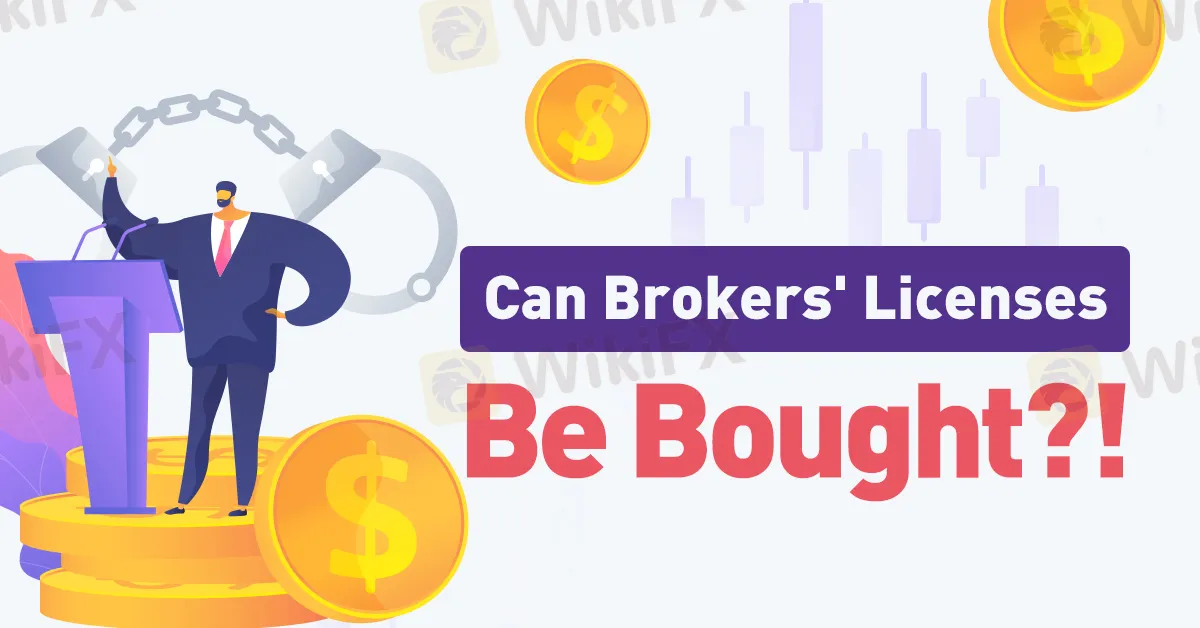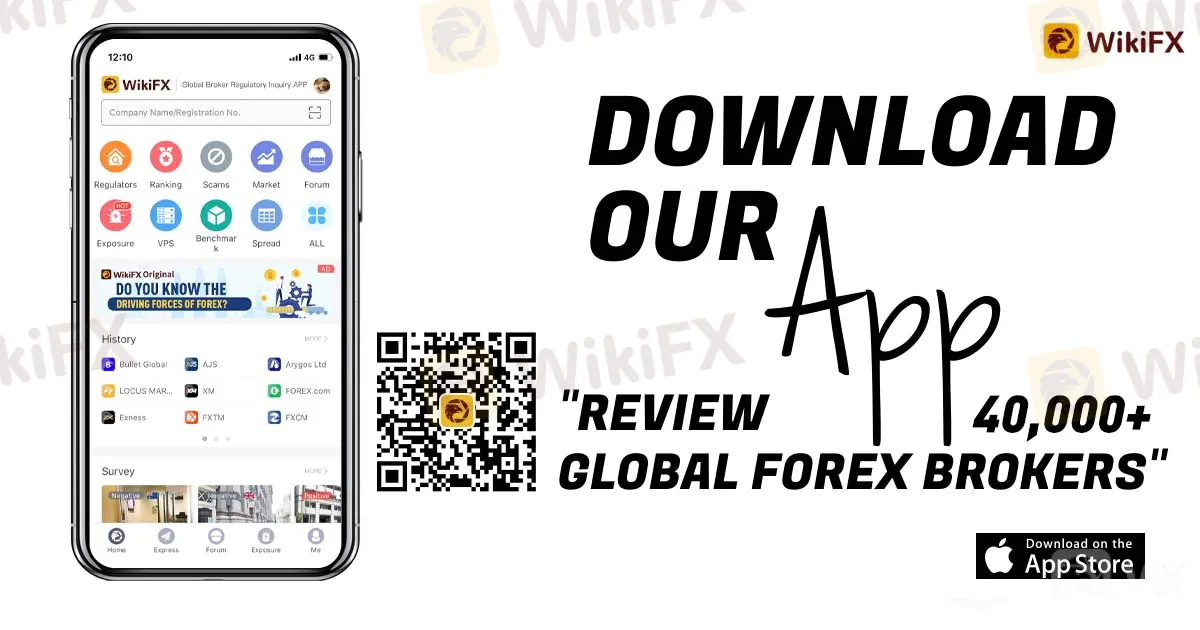简体中文
繁體中文
English
Pусский
日本語
ภาษาไทย
Tiếng Việt
Bahasa Indonesia
Español
हिन्दी
Filippiiniläinen
Français
Deutsch
Português
Türkçe
한국어
العربية
Can Brokers' Licenses Be Bought?!
Abstract:Exploring the intricate decision between acquiring an existing FX broker license and applying for a new one in the thriving world of FX brokerage, this article delves into the key factors that shape this pivotal choice.

The FX brokerage industry is lucrative for potential market entrants looking to establish themselves in key trading jurisdictions. When considering entry, a critical decision arises: acquiring an existing FX broker license or applying for a new one.
One drawback of pursuing a new license is the legal complexity, as noted by Amirani Azaladze, CEO of Forex Brokers License. Acquiring an existing permit, however, may not always be ideal. Azaladze points out that the transfer process and regulatory approval take as long as obtaining a new license, and the cost of an existing license is often significantly higher.
Establishing a new FX/CFD brokerage in many jurisdictions is becoming increasingly challenging due to stricter regulations. Chris Rowe, Director of Financial Technology Consultancy Services, suggests that the buy-or-apply decision should depend on the requirements for setting up a new licensed brokerage and the applicant's business model. He explains that existing regulated brokerages may be content to wait for the full application process. At the same time, those seeking to transition their client base may find a lengthy FCA application process unfavourable.

Emily Faye Helmer, Head of Partnerships at Clearsky Network, notes a significant increase in the time required to obtain a license due to enhanced Anti-Money Laundering (AML) policies. She highlights that in certain jurisdictions, regulators are reluctant to issue new licenses. Purchasers of existing licenses can complete ownership transfers in a more favourable 3-4 months.
Clearsky Network operates a marketplace that connects buyers and sellers in this sector, providing purchasers with essential information to take control of the acquired entity. However, it's vital to conduct due diligence on the existing license's financial reports, accounts, and clientele to ensure it is free from sanctions, fines, or debts.
Capital requirements vary based on the license type and jurisdiction. Azaladze notes that stringent regulators like CySEC, FCA, and ASIC impose higher requirements for STP, market makers, or additional services. Minimum capital can start at €135,000 for non-market maker brokers, while it varies in other jurisdictions.
While traders may prefer higher leverage, major jurisdictions offer lower leverage than offshore licenses. Still, holding licenses from ASIC, CySEC, or FCA carries significant prestige. Geographic location may influence the choice of license, with Southeast and Far East Asia favouring ASIC and FCA, the Middle East preferring CySEC, and offshore licenses like Mauritius, Seychelles, and Bahamas in demand. South Africa is also gaining popularity for targeting the African continent.
The difference between offshore and onshore jurisdictions lies in licensing frameworks, particularly AML and KYC requirements. Onshore jurisdictions like the EU, the UK, Australia, and Canada have more comprehensive AML and KYC requirements for ultimate beneficial owners.
Licensing costs vary widely. For instance, the FCA requires brokers to have a physical office in the UK, and acquisition costs can be substantial. ASIC licenses are expensive, while CySEC licenses are more economical. Offshore jurisdictions like Mauritius offer more affordable options, and South Africa is budget-friendly.
The FCA offers pre-application support for overseas firms expanding into the UK. Dr. George Theocharides, Chairman of CySEC, explains that those with valuable licenses may choose to sell them, triggering a rigorous process to ensure compliance with legal obligations.
In conclusion, acquiring an existing FX broker license and applying for a new one involves multifaceted considerations, from regulatory hurdles to financial commitments. Entities should tailor their decision to their specific circumstances and goals in the dynamic FX brokerage industry.

Disclaimer:
The views in this article only represent the author's personal views, and do not constitute investment advice on this platform. This platform does not guarantee the accuracy, completeness and timeliness of the information in the article, and will not be liable for any loss caused by the use of or reliance on the information in the article.
Read more

INFINOX Partners with Acelerador Racing for Porsche Cup Brazil 2025
INFINOX has teamed up with Acelerador Racing, sponsoring an Acelerador Racing car in the Porsche Cup Brazil 2025. This partnership shows INFINOX’s strong support for motorsports, adding to its current sponsorship of the BWT Alpine F1 Team.

The Daily Habits of a Profitable Trader
Every professional trader follows a structured approach to ensure they are well-prepared, disciplined, and able to seize opportunities with confidence. Whether you are a seasoned investor or an aspiring trader, adhering to a robust daily checklist can significantly enhance your performance. Use this checklist to check if you are a qualified trader

How a Housewife Lost RM288,235 in a Facebook Investment Scam
A 47-year-old housewife in Malaysia recently fell victim to an online investment scam, losing a substantial sum of RM288,235 after engaging with a fraudulent scheme advertised on Facebook.

A Trader’s Worst Mistake: Overlooking Broker Reviews Could Cost You Everything
In today’s digital age, reviews influence nearly every decision we make. When purchasing a smartphone, television, or home appliance, we pore over customer feedback and expert opinions to ensure we’re making the right choice. So why is it that, when it comes to choosing an online broker where real money and financial security are at stake many traders neglect the crucial step of reading reviews?
WikiFX Broker
Latest News
TradingView Brings Live Market Charts to Telegram Users with New Mini App
Trump tariffs: How will India navigate a world on the brink of a trade war?
Interactive Brokers Launches Forecast Contracts in Canada for Market Predictions
Authorities Alert: MAS Impersonation Scam Hits Singapore
Stocks fall again as Trump tariff jitters continue
INFINOX Partners with Acelerador Racing for Porsche Cup Brazil 2025
Regulatory Failures Lead to $150,000 Fine for Thurston Springer
April Forex Trends: EUR/USD, GBP/USD, USD/JPY, AUD/USD, USD/CAD Insights
March Oil Production Declines: How Is the Market Reacting?
Georgia Man Charged in Danbury Kidnapping and Crypto Extortion Plot
Currency Calculator







